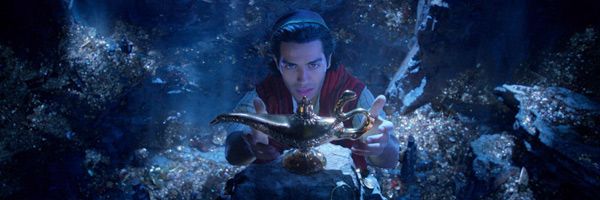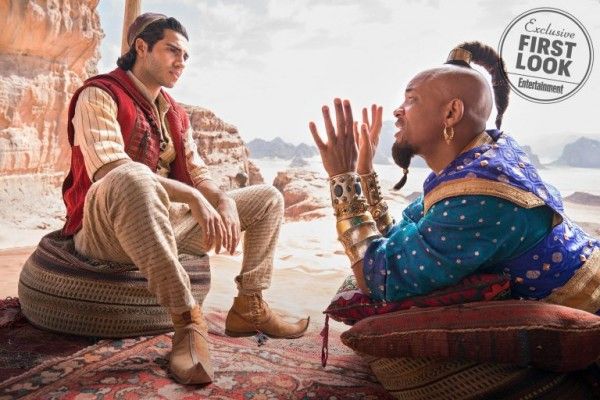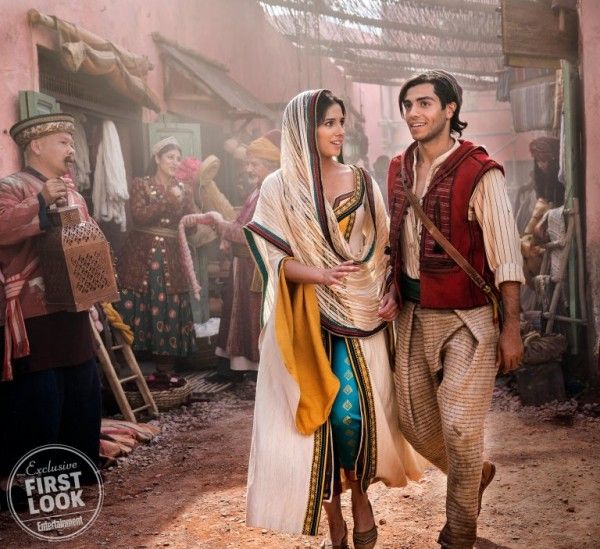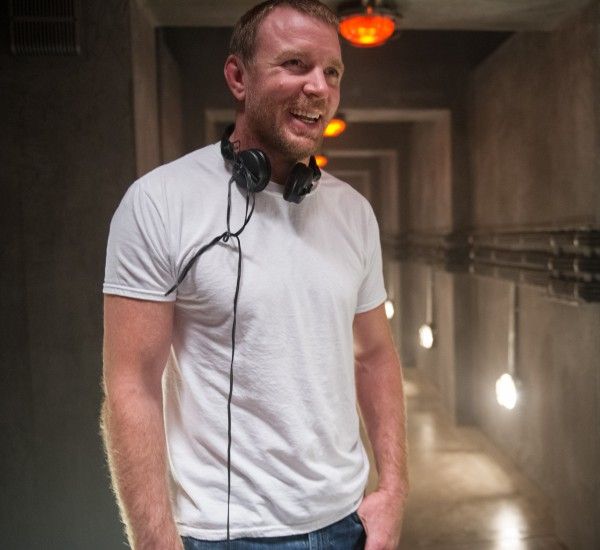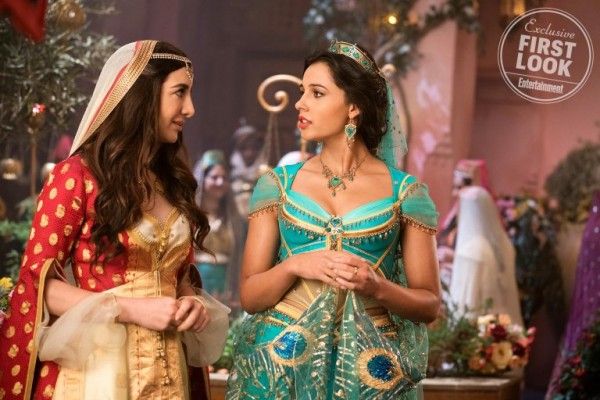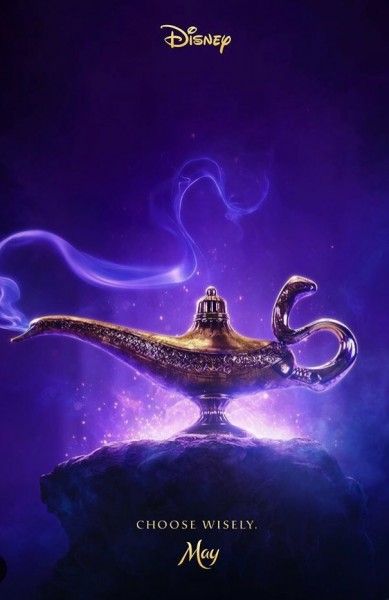Given the massive success of The Jungle Book and Beauty and the Beast, there is considerable attention surrounding Disney’s upcoming live-action remake of Aladdin—especially because of the director at the helm. You wouldn’t necessarily think of Guy Ritchie when considering a colorful Disney musical for the whole family, but that’s part of what makes Aladdin so interesting: it’s a bit of a risk.
Thus far we’ve only seen a teaser trailer and some first-look images, which finally revealed Will Smith as Genie. However, the Genie we’ve see so far is the Genie in his human form, and in speaking with EW for a long and wide-ranging interview, Ritchie assured fans we will be seeing Genie in his CG form. As for what that looks like, exactly, I’ll let Ritchie take it away:
“There’s a particular type of physicality that I grew up with that I was keen on, that 1970s body builder look — not inflicted by steroids but by lifting vast amounts of weight and eating vast amounts of food — so I just want a genie with abs, a genie that looks like he can move stuff. I did want a traditional demi-God, someone who looked like a big, strong dad. I didn’t want a genie that looks like all he can do is eat either, that is the way you end up going. I wanted a muscular 1970s dad — he was big enough to feel like a force, not so muscular that he looked like he was counting his calories but formidable enough to look like you knew when he was in the room.”
As for the elephant in the room, Ritchie says they avoided stepping on the toes of Robin Williams’ iconic performance in the 1992 film by moving away from impressions and towards Smith’s extroverted personality:
“The great thing about the role of the Genie is that it’s essentially a hyperbole for who that individual is, for the actor, so it’s a wonderful platform and tapestry for an actor to fill his boots on, and Will Smith is an extrovert and you need an extrovert for Genie. So once you find a voice, which takes a while — and it’s funny because one of the things that we noticed because we tested things is that the Robin Williams concern was an issue, and that issue was aberrated almost immediately because the commitment of tone that we went with Will — and Will depicted our interpretation of how the Genie should be, and it’s different from Robin’s. There’s a lot of mimicking that takes place in the original and that’s very successful, but we went on a different path with this one.”
Ritchie says they decided not to anthropomorphize the animals, so Apu won’t be a talking monkey. But he does tease a more humorous tone than the animated original film:
“It’s probably got more humor in it than the original, I’m not sure if that happened by default…it was a question of finding new stuff. I just found there were moments we could make more humorous, and we, to a degree, made the narrative more contemporary and applicable to our time now. It was a movie of a particular moment, the 1992 one, and we are in the age we’re in now, so there are contemporary references about how we as a culture have shifted just because it’s a modern audience. Films change according to times that we’re in, so it does reflect contemporary issues in a classical theme.”
During the course of the interview, Ritchie was also asked about cultural concerns and whether he himself felt concerned about tackling this particular story as a white, English director. Ritchie kind of rebuffed the question, but when the interviewer persisted, stressing the importance of what someone like Ryan Coogler brought to Black Panther, Ritchie responded thusly:
“Yeah. I’m afraid I feel the same way about — the whole idea about acting is that actors are supposed to act. The whole idea about directing is directors are supposed to direct. They see it comes from a filter and that filter, which is incidentally hard to articulate because ultimately the creative process is hard to articulate, but I feel so — trying to explain what I find to be a secondary component to what is principally a human challenge rather than an ethnic one, my concern was principally a human concern and all the other challenges are met according to the challenge of any creative component. There are just decisions that are made, there were decisions that were made because they were obvious, because that was the DNA of that particular narrative, so outside of that, I’m confused by, only because maybe I’m taciturn about exactly how to express or articulate that particular component because for me, it’s just obvious.
These human challenges seen through the lens of a particular world, and once that world is created, then everything comes through the prism of that world. So the ethnic component is just part of the makeup of the whole creative expression, it’s not, it just inherits and it’s not a disparate path on a whole, it’s all entwined. I can’t say how it would feel like to be Asian, but I don’t think it’s relevant. What’s relevant is to be human.”
While all stories are universal to some degree, there’s got to be a better way of acknowledging the fact that someone with an Indian or Middle Eastern background may have brought something unique to the table by making Aladdin. Obviously Ryan Coogler brought his own personal experiences to making the distinctly African (and African-American) Black Panther, and it made a difference.
Regardless, I do think Ritchie can be a good storyteller—King Arthur and The Man from U.N.C.L.E. are sorely underrated—and I’m curious to see what he brings to the table with Aladdin. The film is due to hit theaters on May 24, 2019.

